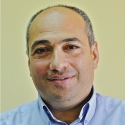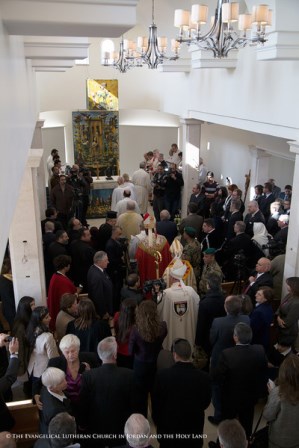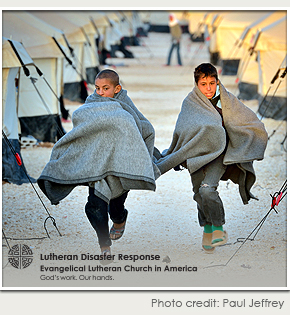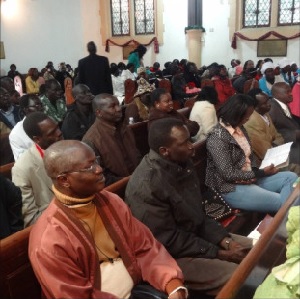In a 23 July joint statement by Lutheran World Federation President Bishop Dr Munib A. Younan and General Secretary Rev. Martin Junge, the global Lutheran communion reiterated its call on all parties for an immediate and unconditional ceasefire and expressed its “deepest concern and dismay” over the flagrant disregard for international humanitarian law and other binding legal instruments, as fatalities from the Israeli and Palestinian conflict have now surpassed 1,422 Palestinians, 56 Israeli soldiers, and three Israeli civilians (latest count according to the Washington Post).
“The LWF states with all firmness: conflicts and wars do not, and cannot provide any excuse to cease observing international obligations. As we have seen in the past, tampering with these obligations only opens the floodgates for atrocities, war crimes and crimes against humanity,” Younan and Junge emphasized.
As the humanitarian crisis in Gaza continues to escalate the Lutheran World Federation’s Augusta Victoria Hospitaldispatched a medical team to Gaza on Friday, August 1, 2014.
Find below the LWF Statement on Gaza, ELCA presiding Bishop Eaton’s letter to Bishop Younan of the Evangelical Lutheran Church in Jordan and the Holy Land (ELCJHL), and Bishop Younan’s response to Bishop Eaton.
The Lutheran World Federation Statement on Violence in Gaza (July 23, 2014)
LWF Press Release: Abide by International Law in Israeli-Palestinian Conflict (July 23, 2014)
Bishop Eaton’s Letter to Bishop Younan (July 17, 2014)
ELCA Press Release: ELCA presiding bishop joins call for peace in the Holy Land (July 17, 2014)
Bishop Younan Responds to Bishop’s Eaton’s Letter to ELCJHL on Gaza Ceasefire (July 29, 2014)
Take Action here by writing to your representatives:
ELCA Peace Not Walls Action Alert: Call on Congress: Stop Gaza Assault



 Over 150 international companions from around the world and local Christians gathered for the dedication of the new
Over 150 international companions from around the world and local Christians gathered for the dedication of the new 

